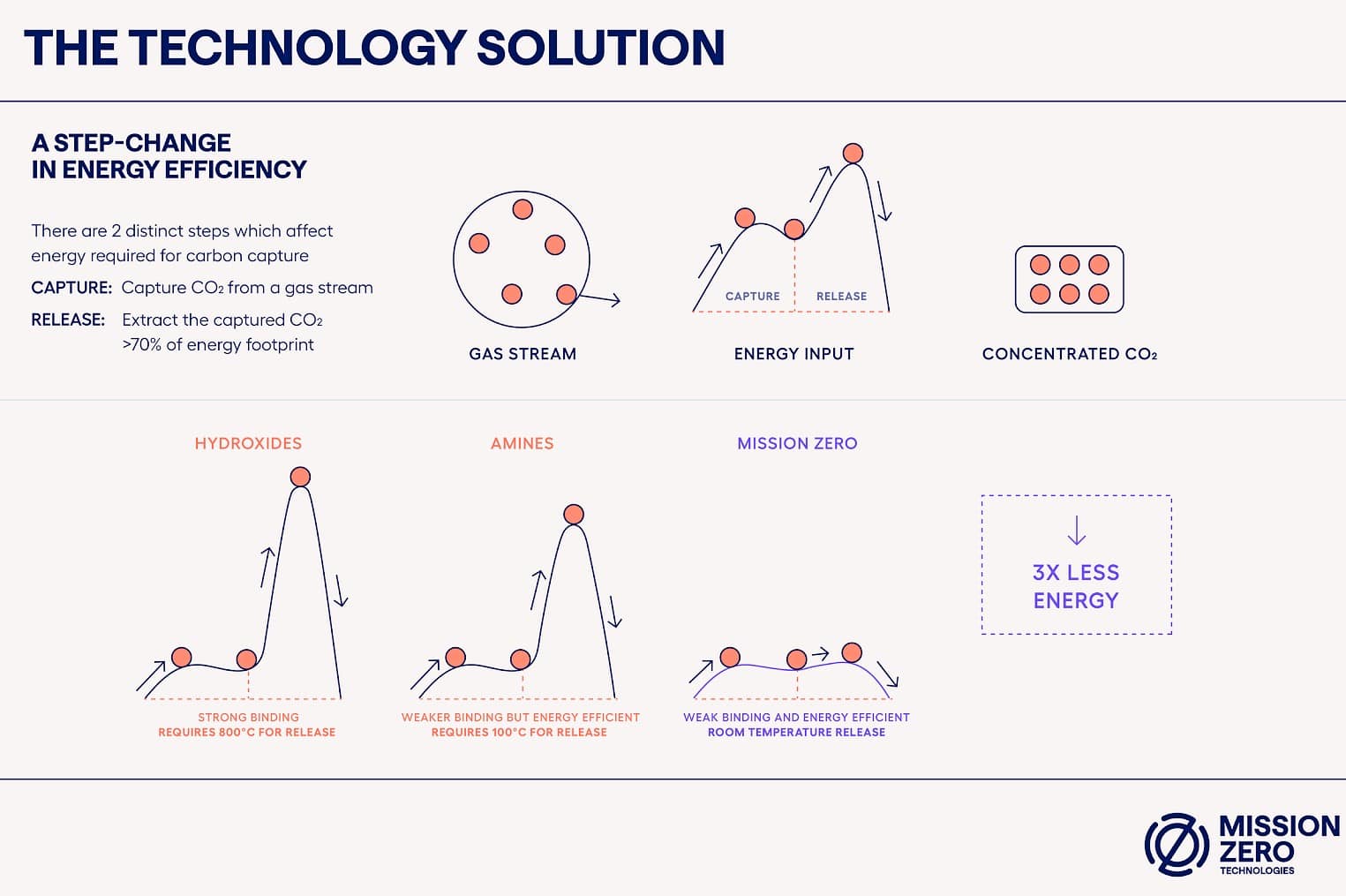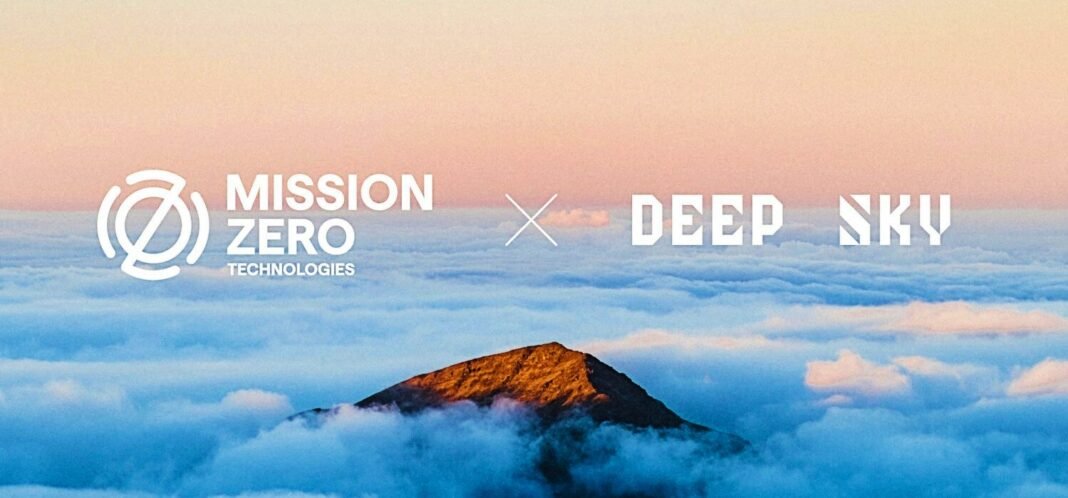Deep Sky, a Canadian carbon removal project developer, and Mission Zero Technologies (MZT), a UK-based Direct Air Capture (DAC) company worked together to deploy DAC facilities in Canada.
The deal marks a significant milestone for the emerging carbon removal industry in Canada. Deep Sky aims to turn the country into a world-leading hub for carbon removal.
First-of-a-Kind DAC Demonstration
The Montreal-based carbon removal company is building the world’s first gigaton-scale carbon capture. They seek to remove billions of tons of CO2 from the atmosphere and permanently store it underground.
Deep Sky’s partnership with Mission Zero starts with a first-of-a-kind (FOAK) demonstration of the latter’s DAC technology that captures 250 tons of CO₂ each year. The ultimate goal is to develop commercial facilities that capture 100,000 to 1 million tons of CO2 annually.
The FOAK facility follows successful demonstrations of Mission Zero’s DAC technology in London. The same tech will also be used later this 2023 to produce synthetic aviation fuels and building materials at 2 sites in the UK.
The FOAK demonstration plant will tap into Quebec’s massive source of renewable hydroelectric energy. It will be up next year.
Speaking for their agreement, Deep Sky CEO Damien Steel noted that:
“Mission Zero is a pioneer, establishing a modularized DAC technology that is projected to reduce both energy consumption and cost. With the addition of Mission Zero’s tech,… commercialized carbon removal at scale is within reach.”
Deep Sky will leverage Mission Zero’s DAC system as part of its Alpha Lab test facility.
DAC is a carbon removal technology recognized globally and identified by the Intergovernmental Panel on Climate Change (IPCC) as critical for meeting global climate targets. By replacing fossil fuels as a source of carbon, it generates both environmental and economic benefits.
How Does Mission Zero’s DAC Tech Work?
Mission Zero Technologies has rapidly grown from lab to pilot by getting support from the world’s renowned climate VC Breakthrough Energy Ventures and the famous XPRIZE Foundation. Other large companies like Stripe and Anglo American, as well as the UK Government, are also backing up the DAC company.
Mission Zero’s DAC system is also easy to integrate with renewable power sources. It produces high-grade CO2 via its dynamic electrochemical separation technology.
A study revealed that electrochemical methods are a more efficient way of capturing CO2. They use special liquids that can hold more carbon at once, making it even more efficient.
Mission Zero’s DAC process also leverages existing, scaled and mature technologies, including electrochemical water purification and cooling towers. It also doesn’t need heat, further reducing total energy consumption and uses 3x less energy than other approaches.

Optimized for deployability: it’s compact, modular, electrically-powered, and works under ambient conditions.
Energy-efficient: the process units consume less than 800 kWh/tCO2.
Off-the-shelf: components are off-the-shelf, made in large volumes already.
These properties make Mission Zero’s DAC technology an ideal choice for Deep Sky’s Lab test facility.
By utilizing mature, off-the-shelf units in a heat-free system, the company’s technology eliminates supply chain uncertainties while delivering the necessary energy efficiency to rapidly scale this kind of carbon removal after demonstration.
- Mission Zero Technologies believe that permanently locking CO₂ away into rock through mineralization is the gold standard for carbon removal.
Combining their energy-efficient electrochemical DAC technology with mineralization at scale offers one of the most effective ways to tackle historic carbon emissions. What it needs is to pair it with existing carbon removal systems strategically positioned in the right places.
Deep Sky fits into that requirement.
Per Mission Zero CEO Dr. Nicholas Chadwick, their partnership with the Canadian carbon removal company enriches their “own industry’s understanding of operating DAC in diverse climates and geographies.”
It will also help them expand the application of this crucial carbon removal technology to maximize positive climate impact.
- RELATED: U.S. to Invest $1.2B in DAC Projects
Just last month, Deep Sky announced collaboration with Svante Technologies to study carbon sequestration in Quebec. It’s the company’s first venture to assess carbon capture and storage (CCS) technologies as a technological climate solution.
Deep Sky’s collaboration with Mission Zero underscores the growing importance of carbon removal technology in combating climate change. Their joint efforts seek to establish Canada as a significant player in carbon removal, showcasing the potential of DAC for a cleaner, more sustainable future.

